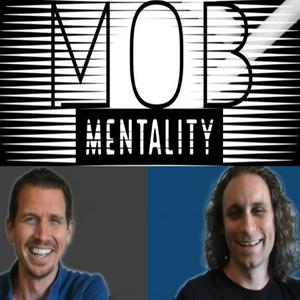Join the Mob Mentality Show for a stimulating conversation with Kenny (Baas) Schwegler, co-author of Collaborative Software Design, as we explore the intersection of software architecture, team collaboration, and organizational culture. In this episode, we uncover how collaborative software design and Domain-Driven Design (DDD) transform software delivery from a siloed, top-down process into a shared problem-solving experience that integrates business, engineering, and user perspectives to get all the data on the table.
Kenny shares practical strategies for running collaborative modeling sessions, including EventStorming, example mapping, and guerrilla modeling. Learn how to engage stakeholders and developers in the same room, foster shared understanding, and evolve systems iteratively while navigating complex organizational dynamics. Whether you’re designing greenfield systems or improving brownfield applications, these techniques empower teams to reduce miscommunication, avoid groupthink, and make better design decisions faster.
We also dive into the cultural and systemic challenges that impact software delivery, including implicit hierarchies, patriarchal structures, and unspoken decision-making rules. Discover how amplifying quiet voices, balancing power dynamics, and creating psychologically safe environments directly improve software outcomes. Kenny explains how effective collaboration goes beyond tools and patterns—it’s about shaping a culture where diverse expertise is actively leveraged and trade-offs are surfaced transparently.
Key takeaways from this episode include:
- How collaborative software design bridges business understanding and technical feasibility.
- Practical methods to introduce DDD, even in non-collaborative environments.
- Techniques to iteratively discover, model, and implement solutions in complex domains.
- Strategies to neutralize hierarchy and amplify underrepresented perspectives in decision-making.
- Insights on integrating team autonomy, Team Topologies principles, and flow-based development for continuous improvement.
This episode is essential for software architects, product leaders, developers, and anyone invested in high-performing, collaborative teams. Gain actionable insights on designing software as a collective endeavor, aligning stakeholders, and creating systems that support innovation, adaptability, and inclusion.
Video and Show Notes: https://youtu.be/Mqbm2kwpsHo


